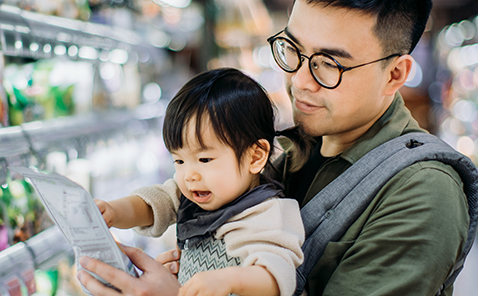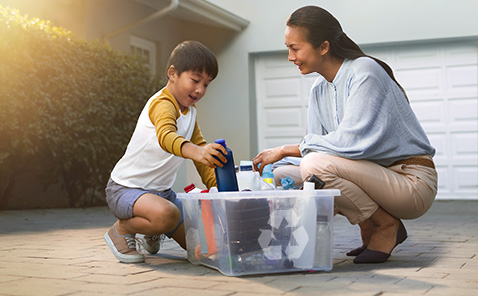
LESS FOOD WASTE
INNOVATIVE RECYCLING MEANS FOOD PACKAGING CAN BE REUSED
Flexible (soft) plastics help food to stay fresh for longer. When used to package perishable items such as salads, cheese, meat, and bread, they help to extend their shelf-life and prevent food waste. But plastics like this are not widely recycled at the moment. The UK, for example, uses nearly 400,000 tonnes of soft plastics a year, yet only around 21,000 tonnes are currently collected and recycled in the country. That leaves a great deal of plastic waste that has to be landfilled, incinerated or an escape into the environment. Also, with traditional recycling processes, soft plastics are only “downcycled” into non-food-grade material.
Today, the world needs to transition to a “circular” economy, where materials can be transformed back into new products at the end of their life. Could soft plastics be part of the circle? A pioneering collaboration has demonstrated just how they can. Involving SABIC and partners from across the food industry supply chain the unique project centres on an advanced recycling process called pyrolysis, which transforms used soft plastics into oil. In turn, this becomes a feedstock for new plastic. The result is material that’s as safe and effective as virgin soft plastic from fossil sources. With this technology, soft plastics can be recycled over and over again, with no compromise on quality.
Five organizations worked together to prove the potential of this project. Keen to develop its own circular business model, a major retailer collected used plastic packaging directly from its customers, sending it to a specialist recycling company, which turned it into oil that SABIC then used to create plastic pellets. These were then used by a packaging manufacturer to create food-grade packaging for one of the retailer’s suppliers. It’s a circular, closed-loop system where the material is not wasted.
With innovative recycling and close collaboration, soft plastics can be part of a future where fewer materials go to waste.


